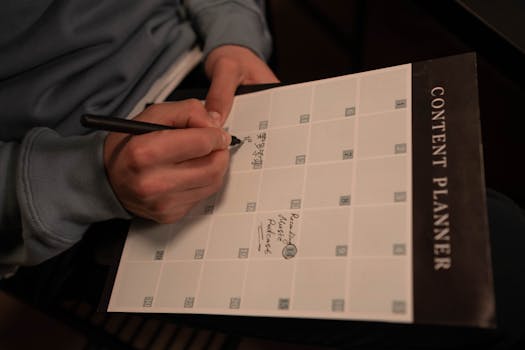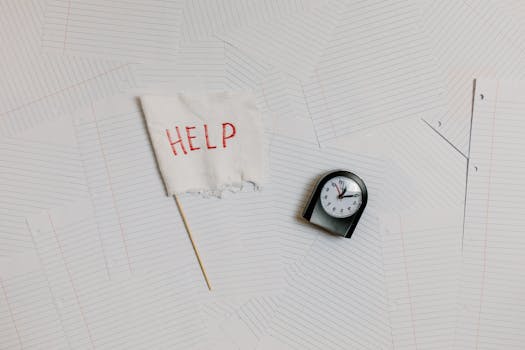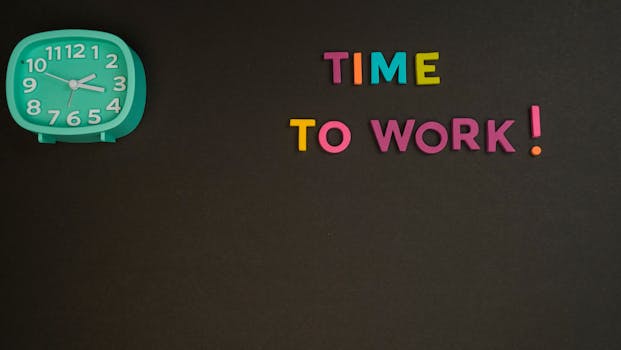
Time Management Strategies for Personal Efficiency
Time management is the process of planning and controlling the amount of time spent on different activities to maximize efficiency and productivity. Effective time management strategies can help individuals achieve their goals, reduce stress, and improve their overall quality of life. In this article, we will explore the best time management strategies for personal efficiency.
Understanding the Importance of Time Management

Time management is essential for achieving success in all areas of life, including personal and professional. Poor time management can lead to missed deadlines, lost opportunities, and increased stress levels. On the other hand, effective time management can help individuals prioritize tasks, manage their time wisely, and achieve their goals. Good time management skills can also enhance one’s reputation, increase productivity, and lead to better work-life balance.
Time Management Strategies for Personal Efficiency

Here are some effective time management strategies that can help boost personal efficiency:
- Set clear goals and priorities: Establishing clear goals and priorities is essential for effective time management. It helps individuals focus on what’s important and allocate their time accordingly.
- Use a schedule or planner: Writing down tasks and appointments in a schedule or planner can help individuals stay organized and on track. It also helps to avoid overcommitting and underestimating the time required for tasks.
- Prioritize tasks using the Eisenhower Matrix: The Eisenhower Matrix is a decision-making tool that helps individuals prioritize tasks based on their urgency and importance. It divides tasks into four quadrants: urgent and important, important but not urgent, urgent but not important, and not urgent or important.
- Use time-blocking: Time-blocking involves scheduling large blocks of uninterrupted time to focus on important tasks. It helps individuals avoid multitasking, minimize distractions, and increase productivity.
- Take regular breaks: Taking regular breaks can help individuals recharge, reduce stress, and increase productivity. It’s essential to take breaks that are long enough to rest and relax but not so long that they negatively impact productivity.
- Learn to say no: Saying no to non-essential tasks and commitments can help individuals free up time and energy for more important things. It’s essential to learn to say no without feeling guilty or apologizing.
- Use technology to your advantage: Technology can be a powerful tool for time management. Individuals can use apps, software, and other tools to schedule tasks, set reminders, and track their time.
- Stay organized: Staying organized is essential for effective time management. Individuals should keep their workspace, digital files, and schedule organized to avoid wasting time searching for information or materials.
Additional Time Management Tips

In addition to the strategies mentioned above, here are some additional time management tips that can help boost personal efficiency:
- Avoid multitasking: Multitasking can decrease productivity and increase stress levels. Individuals should focus on one task at a time to ensure they complete it efficiently and effectively.
- Stay focused: Staying focused is essential for effective time management. Individuals should avoid distractions, such as social media, email, or phone notifications, while working on important tasks.
- Delegate tasks when possible: Delegating tasks can help individuals free up time and energy for more important things. It’s essential to delegate tasks to the right people and provide clear instructions and deadlines.
- Review and adjust: Individuals should regularly review their time management strategy and adjust it as needed. This helps to identify areas for improvement and make changes to optimize productivity and efficiency.
Conclusion

In conclusion, time management is a critical skill for personal efficiency and productivity. By implementing effective time management strategies, such as setting clear goals and priorities, using a schedule or planner, prioritizing tasks, and taking regular breaks, individuals can boost their productivity, reduce stress, and achieve their goals. Remember to stay organized, avoid multitasking, and stay focused to get the most out of your time management strategy.






